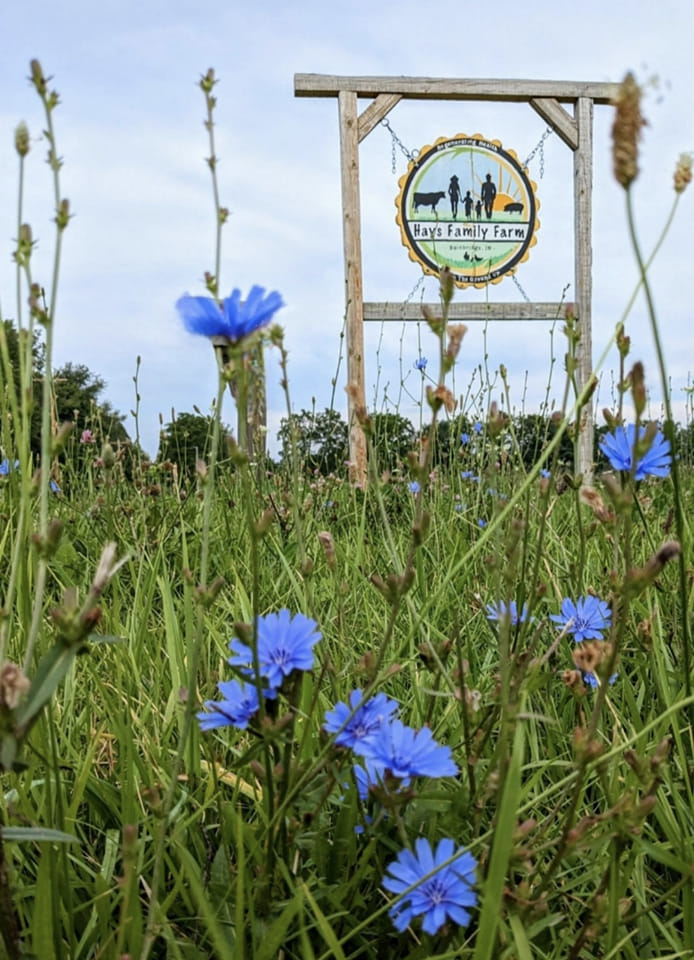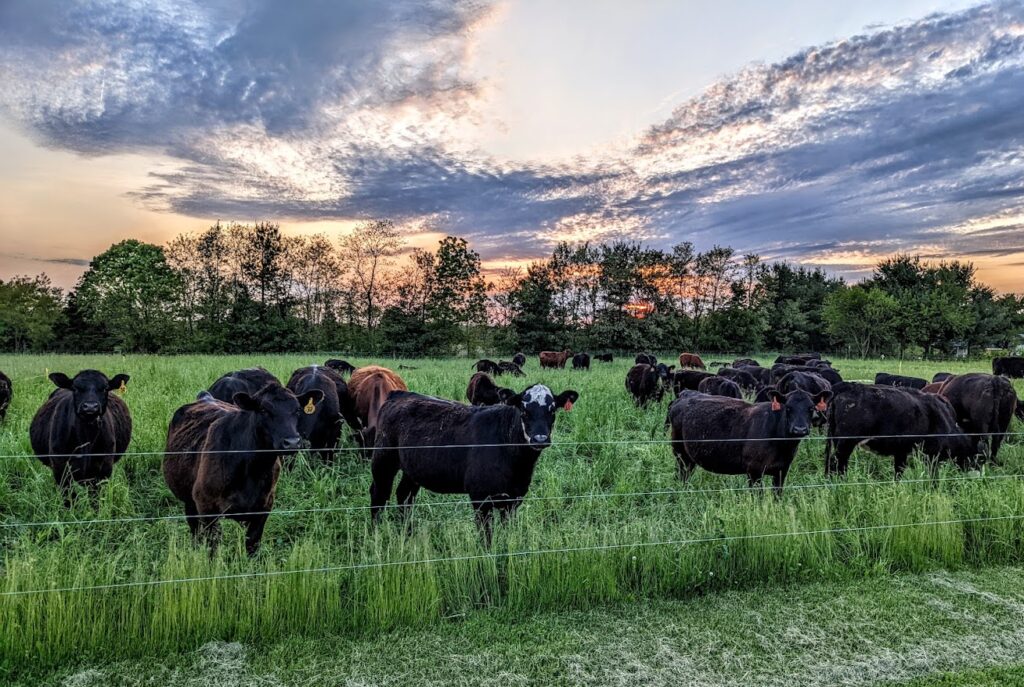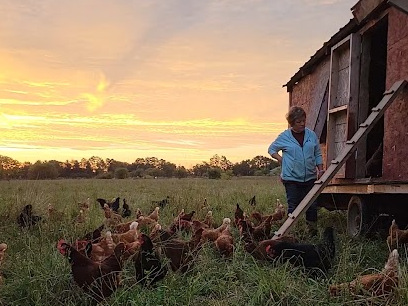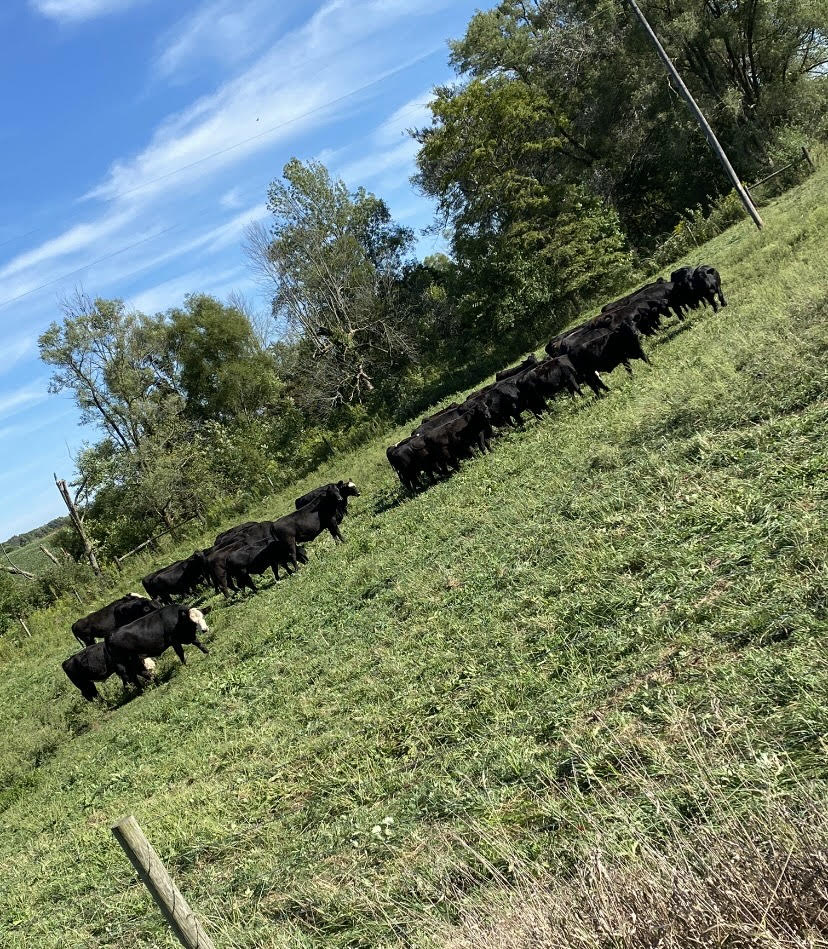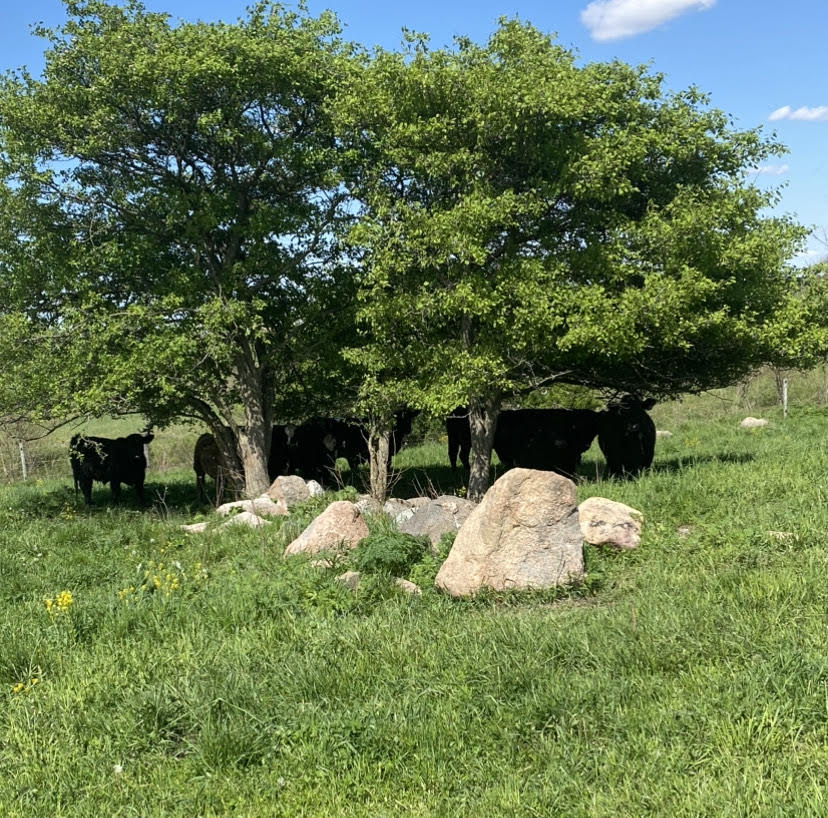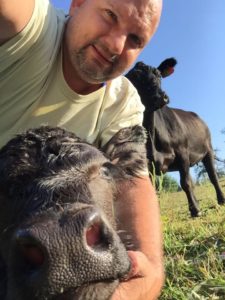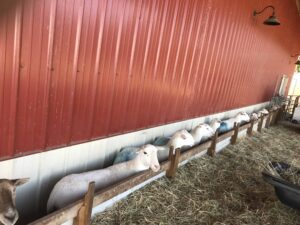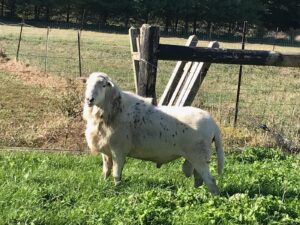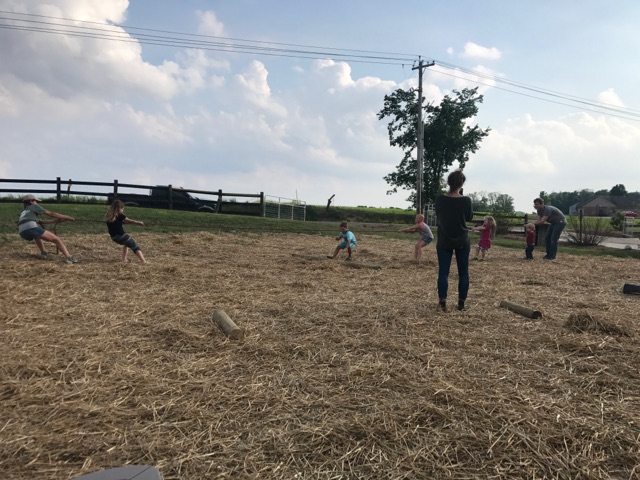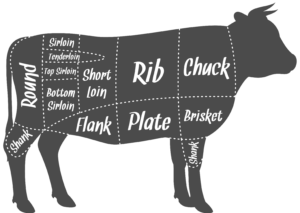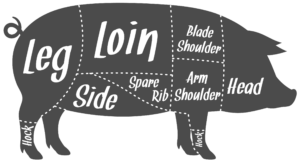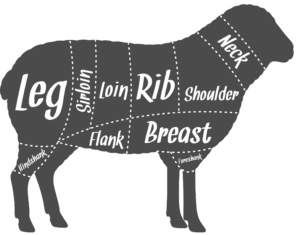One of our customers thrilled me this year when she asked about our first batch of poultry. See, she has had our pasture raised poultry for a few years, but this years poultry was a little different. The color was different in that the fat was a nice deep yellow. Like I said, the question thrilled me because for years I have raised poultry out on grass because I knew there was a nutrient difference. I knew that the muscle tone was firmer and it had a fuller flavor. I knew I believe in the humane treatment of livestock. But I stuck to raising eggs so that I could have a reassurance that there was a difference. You see, when you crack open a pasture raised egg you can see a difference. The yolk is that deep yellow color. That color represents the beta caratene from the grass. If you can see a difference than you know nutritionally it is also different. But back to the meat birds, I had yet to be able to see a difference in the meat. Finally after 10 years of raising pastured poultry, my customers were able to vissually see a difference. That yellow fat was present early in the season because the birds were ingesting early season alfalfa and the high vitamin count was coloring the fat just as a carrot is colored. This doesn’t mean that the other pasture raised poultry with a lighter fat isn’t high in vitamin content, it just means that that first batch was exceptionally high in beta carotene. Now, if you paid attention to what I was typing earlier you might notice that I said I had yet to be able to see a difference in the meat. I say this because a few years earlier I had another epiphany moment in my experience with pastured poultry. I was finally able to see a difference, not in the meat but in the organs. You must first realize that I have not gone to the grocery store to buy meat in 10 years and before that time I had been a vegetarian so did not buy much at all. No, I am not a purist so I have had other meat products but have little experience cooking and eating traditionally raised meat. But I do now have experience processing meat. A few years ago, when I began processing, I realized there was a difference in the overall physiology of pasture raised livestock when compared to cage raised livestock. This realization came from processing poultry. You see, you can feel a difference when handling the pasture raised birds. They are firm. Cage raised birds tend to be slippery and slimey. You can feel the firmness of the muscle from the daily exercise. Has anyone been told that exercise does a body good? Taking a closer look, you can see a difference with the internal organs. You see, the pasture raised poultry have nice deep red livers. They pass inspection. Whereas cage raised birds have pale livers that just fall apart. My first guess would have been that their livers had filtered out lots of yuck so they just were done filtering but I was shocked to process organic birds that were raised in confinement just to see livers that were failing. Yet birds raised on traditional feed but outside looked good. I came to realize that it was something about the grass that kept the poultry healthy. I could see it!Why was I surprised when I know that it is the greens in our diet that help filter toxicity for our own bodies. It is the fruit and veggies that have the high level of antioxidants that keep us cancer free. This learning curve just lead me back to the old statement “You are what you eat”. Because we eat high on the food chain, we need to watch what we eat so that our own organs can function well and keep us running strong. We need to bother with finding a good supply of healthy meat. Give us a call so we can get you started. Once you start, you won’t turn back. We will be processing fresh chicken on Monday. Let us tell you why to bother…………. Call (765) 324-2161
Welcome to Hays Family Farm
Hays Family Farm
Meet the Farmers:
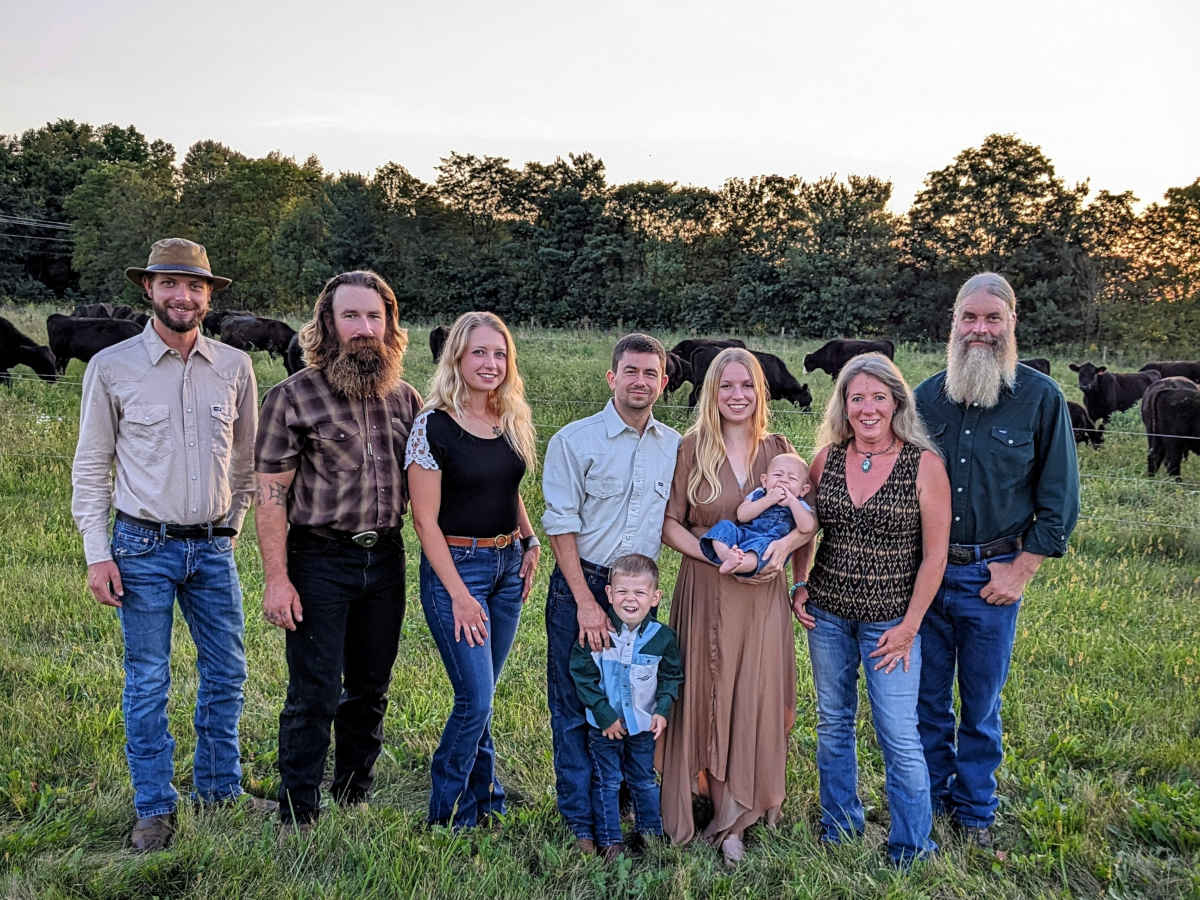
John (1st Generation): The visionary who grew up surrounded by the rhythms of agriculture on his grandparents' farm. After a stint in industrial/commercial AG post-high school, he decided to forge his path. In the early 2000s, he embarked on the journey of raising grass-fed beef. By 2020, a significant portion of our farm had transitioned to regenerative practices.
Jenny: Partner in the farming venture, bringing dedication and passion to the sustainable agriculture movement.
Jordan and Jared: The next generation, adding fresh perspectives and enthusiasm to the family's agricultural legacy.
Discover Hays Family Farm:
Farm Name: Hays Family Farm
Website: www.haysfamilyfarm.net
Facebook Page: Hays Family Farm
Roots in Agriculture Since 2002:
Embarking on this agricultural adventure in 2002, the Hays family has deepened their connection with the land over the years. Although not a designated Hoosier Homestead Farm, our commitment to sustainable practices is unwavering.
Generational Legacy:
Proudly standing as the 2nd generation on this farm, we carry forward the lessons, values, and dedication passed down from our farming ancestors.
The Farming Story:
John's journey began with a vision deeply rooted in his childhood. Growing up among the fields and livestock of his grandparents' farm, he knew farming was his calling. The path led him to industrial/commercial AG after high school, but the call of sustainable, regenerative farming beckoned. In the early 2000s, the first seeds of grass-fed beef were sown, and by 2020, regenerative practices were taking root across the farm. Today, a harmonious blend of pork, chicken, eggs, and grass-fed beef embodies our commitment to providing wholesome, community-strengthening nourishment.
Sustainable Farming Practices:
Welcoming visitors to Hays Family Farm means offering a glimpse into our regenerative farming practices. Farm tours are a journey through daily adaptive grazing for cattle, where chickens play a vital role in the symbiotic relationship that regenerates our soil.
Mission and Vision:
Our mission is simple but profound: to be stewards of the land, prioritizing healthy soils, vibrant plants, happy animals, and, in turn, fostering the health of our community.
Proudest Accomplishments:
A testament to our commitment is the successful transformation of hay fields and grass-fed pastures into regenerative landscapes. The adoption of regenerative farming practices and adaptive grazing techniques has redefined our approach to agriculture.
Farming Highlights:
Diverse Harvest: From horseradish and herbs to broccoli and tomatoes, our fields have embraced diversity.
Learning from Mistakes:
Monoculture row crops, including field corn and soybeans, were tried and deemed a less-than-ideal venture.
Family Achievements:
Our involvement in FFA and 4-H extends to the next generation. Jessica, part of the second generation, achieved the prestigious title of Supreme Showman at the county fair and went on to become the third runner-up fair queen and a state FFA officer.
A Humorous Farming Tale:
In 2021, the family embarked on the ambitious project of converting hay fields into regenerative pastures, situated prominently near a main highway. The local farming community was abuzz with skepticism. However, within just two years, the success in pasture fertility not only silenced the doubters but also sparked interest among neighbors keen on adopting similar regenerative practices.
